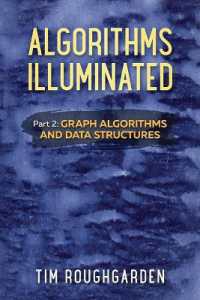Full Description
Severe and Profound Brain Injury is a comprehensive guide offering clinicians practical tools, techniques, and ways to structure thinking in approaching how to best assess and provide neurorehabilitation to patients with the most overwhelming and complex neuro-disability. Advances in acute care will lead to increasing numbers of people surviving with complex neuro-disability and more families will be challenged by a confusing and devastating form of loss. Most clinicians will not have encountered this level of impairment in clinical practice and can feel deskilled, challenged by how best to help, and overpowered by the questions it raises.
This book proposes a paradigm shift in how to assess and formulate the cognitive, behavioural, and emotional difficulties in complex neuro-disability. The task for clinicians is to look for ability in the face of global impairment, rather than focus on areas of disability. Practical advice is provided on how to approach thinking about the issues and design bespoke, person-centred assessments from first principles with robust methodology. Prolonged disorders of consciousness and locked in syndrome are discussed in detail. Guidance is given to keeping the person at the centre of decision-making and intervention planning, particularly as so many will lack mental capacity and require best interests' decisions to be made on their behalf.
This is essential reading for established clinicians wanting to develop expertise working with these patients and their families, clinical psychologists, neuropsychologists, other health professionals, students, and trainees.
Contents
Chapter 1. An introduction and reflection on the challenges of working with adults with catastrophic brain injury. Chapter 2. What's in a name?. Chapter 3. Approaches to assessment and neurorehabilitation in complex neuro-disability. Chapter 4. Approaches to cognition in complex neuro-disability. Chapter 5. Approaches to neurobehaviour in complex neuro-disability. Chapter 6. Emotion in complex neuro-disability. Chapter 7. How do we make sense of the presentation? Complex case formulation. Chapter 8. Working with people with prolonged disorders of consciousness. Chapter 9. Working with people with locked in syndrome. Chapter 10. Working with families in complex neuro-disability. Chapter 11. Effective team working with people with complex neuro-disability. Afterword.








